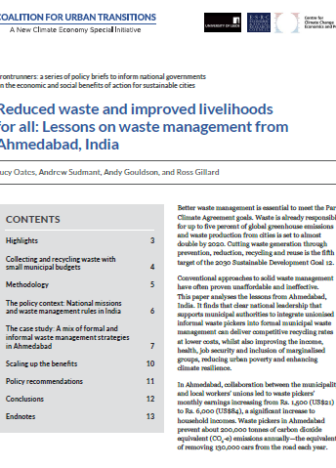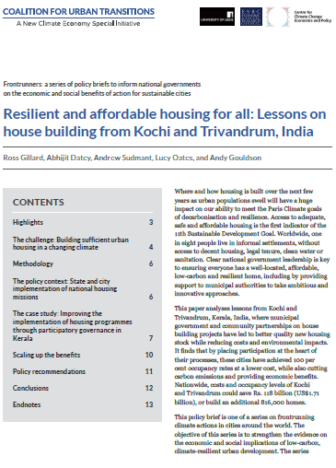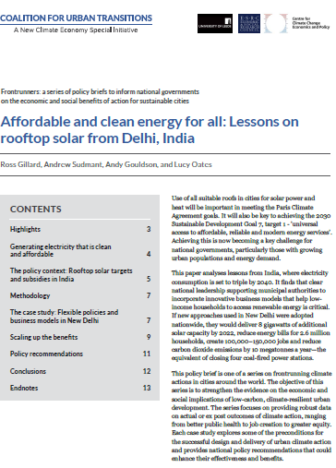Like many rapidly urbanising countries, India’s cities are in the grip of energy, waste and housing crises with major economic implications: electricity demand is growing by 3% per year; in many cities, less than half of all solid waste is collected; and 99 million homes are needed by 2022.
India has some ambitious goals and national policies to tackle these issues, but current approaches to building homes, installing rooftop solar, and managing waste have been slower to deliver and less effective than hoped.
Three new policy papers assesses pioneering local projects on rooftop solar, solid waste management and housing construction in New Delhi, Ahmedabad, Kochi and Trivandrum, India. They find that, if these approaches were adopted nationwide, these programmes could reduce energy bills for over 2.5 million households, provide almost 1 million additional homes and generate well over 100,000 new jobs. They could also cut India’s carbon footprint by over 16 megatonnes – the equivalent of the CO2 emissions of Croatia or Kenya.
The papers provide recommendations for national governments in each sector. It is hoped that they are useful both in boosting the effectiveness of India’s approach to rooftop solar, solid waste management and housing, and for other national governments facing similar challenges to meet their Paris Agreement commitments and their 2030 Sustainable Development Goals.
The research was conducted by an expert team from the Centre for Climate Change Economics and Policy at the University of Leeds, UK, for the Coalition for Urban Transitions – a global initiative supporting national governments to transform cities.



